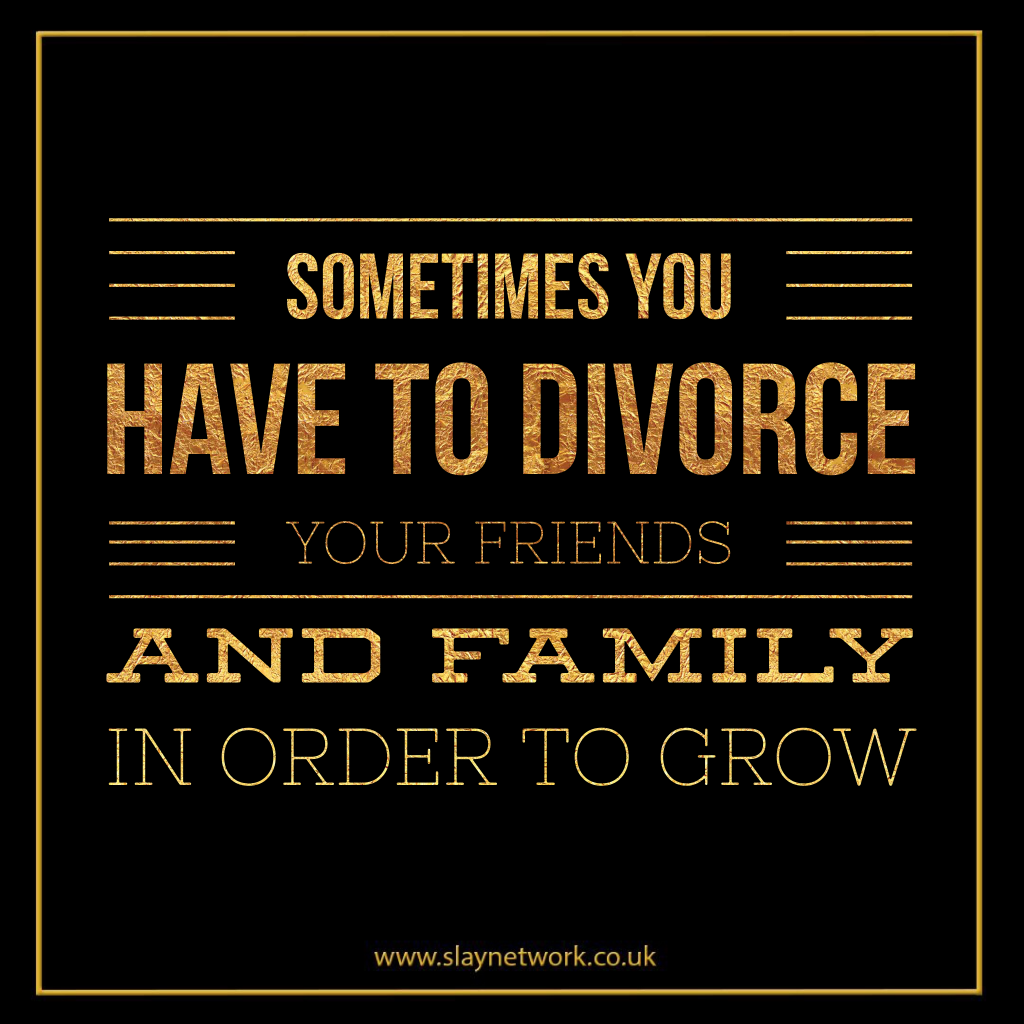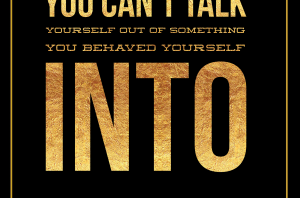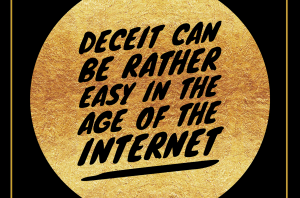
In just a few words… family and friends define us. It’s a significant part of who we are to the core. An interesting thing about friends and family is that people can tolerate more bad than good, and even a strained relationship can still be considered satisfying for both people. Family and friends can be the ones who drive you nuts, but are also there by your side in tough spots. That’s a fair trade: Take the good with the bad. Family members and friends are the ones who’ve seen us at our best and worst, and the love is consistently and unconditionally there… or should be. The key ingredients are forgiveness, unconditional love, the ability to agree to disagree at times, and mutual respect without having to change or control each other.
These are ideal conditions though, and for some it’s never been this way with certain family members and friends. These relationships, when stressed or tense, are the worst to endure because our family and friends mean so much to us. Unfortunately, many people are faced with the excruciating decision of whether or not to continue a strained relationship with a parent, sibling, grandparent, son, daughter or friend. If you have to cut the ties, it’s usually because you feel you have endured years of discontent (or even abuse) and you have no other choice. Many who are reading this have endured too long.
Evaluating the relationship
Chances are you’ve been evaluating the strained relationship for awhile, but committing to cutting the ties brings on feelings of guilt, failure, emptiness, doubt, abandonment, and even grief. No matter how strained, intolerable, and/or abusive the relationship is, it’s a difficult decision to make. Asking yourself the questions below can help.
* What’s the history? Psychologists have an old saying: “The best prediction of future behavior is past behavior.” Having an extensive history is what hurts the most when breaking up with a family member or friend, but if that history has been chronically negative, this can make it easier to make an informed and intuitive decision. It will be hard to let go of the relationship if there were good times, but easier to cut ties if it’s been a long, torturous road in general. Sometimes it helps to put it all on paper— one column for positives and one for negatives—so that you can see both sides objectively. If they keep insisting that they’ve changed, then keep your eyes open to determine if that is true. Even if they have changed, they still need to earn your trust again.
* Who else is affected by this relationship? Sometimes, breaking ties with one person means you could have the entire family upset with you. What a weight on your shoulders! It’s important to manage other family relationships and evaluate the effects on others as well, but don’t feel entirely responsible for everyone’s feelings. Will breaking ties effect others? Is this person so awful that it’s worth upsetting the family unit? Will other family members support your decision? Is there any chance that your decision to take care of yourself could have positive repercussions for someone close to you or for the family as a whole? Don’t hesitate to cut ties if the only reason you are keeping contact is for other family members. Enabling a harmful family member is sad but common.
* How is the stress effecting your personal life and current family? Many people get confused and think their parents or the family they were born into is more important than the family they build for themselves. This is wrong. Your wife and/or husband now take precedence over your mom and/or dad, so don’t tolerate original family members if they negatively effect your current family: You are responsible for their well-being and action must be taken. Preferably you, rather than your spouse, should handle your family members.
* What’s your role? We take on a label or role from an early age in the family unit. Sometimes we get stuck in that role and transfer it into our lives beyond the family. For example, your role in the family could be “the baby,” one who is enabled even into adulthood. Or you might be “the fixer,” one who lends money and keeps the peace at all costs, taking care of everyone. Sometimes a family needs a scapegoat, one to blame everything on. Don’t be this person. It takes immense effort to change your role in the family.
* How do they feel about you? Ideally, family should be based on unconditional love within reason. If you’re not feeling the love, then what are you feeling? Sometimes it’s helpful to ask yourself how you feel around the person, because this is probably connected to how they feel about you. If you feel awful when that person is around, it’s probably triggered by their true feelings about you. Picking up on subtle cues may help you realize the truth of that relationship. In other words, the feeling may be mutual, they just may show it in passive aggressive ways. Keeping that in mind, remember that it’s not your fault they feel this way.
* Are there any boundaries? One thing many families have in common is a lack of boundaries: People say what they want, do what they want, and respect is nowhere in sight. Often their figurative shoe print is stamped on your back cause they’ve used you like an old doormat. Somehow, people equate a lack of boundaries with unconditional love. Specialists agree that for children, having boundaries gives a sense of being loved, and childhood is where some of the mayhem started between family members. If you’re still undecided about cutting off the relationship, setting boundaries now can be helpful.
* How close are you? (Literally and figuratively.) If the person you have problems with lives far away or you don’t see them often, you can endure it and then get back to your normal life. A quick visit with the negativity and drama — maybe two holidays a year— might be manageable. But if the strained relationship is with a close family member, then they usually mean more to us and therefore, the hurt takes a bigger toll. In this case, keeping in touch may not be worth the hurt and pain. It is more difficult, of course, to break close family or friend ties, but those can be the ones that damage us the most: This is a double-edged sword and requires evaluating risks versus benefits.
* Is resolution possible? If the answer is no, then it may be time to move on. Don’t bother hashing out major issues between the person and yourself— you’ve probably tried this in the past and walked away with a big heaping serving of that person’s denial or self-preservation. As children, we are powerless against family members because we’re too young to have a say or coherently express our feelings. Sometimes that pattern follows us to adulthood. Remember, any decision can be temporary. If the ties are cut right now, they may be mended later. Cutting ties isn’t always an open and close, final case.
One more thing: Sometimes, instead of having an issue with one person, the problem lies with more than one or even an entire branch of the family. In that case, it’s best to evaluate the issues as a whole. It could be that letting go of an entire chunk of your family would be more stressful than maintaining distance, and it’s entirely up to you to make that decision.
* The relationship is physically or mentally abusive. Don’t downplay the effects of these kinds of abuse, especially long-term. It may take counseling to realize you’ve been abused.
* It causes enough stress that it effects important aspects/areas of your life, like work or home life.
* You find yourself spending a lot of time thinking about the sour relationship and losing sleep over it. Don’t underestimate how lack of sleep and stress effect your health.
* The relationship is one-sided when there is no valid reason why there isn’t some effort made by the other person.
* The relationship is only about borrowing money.
* The family member is taking you down with them or constantly demanding favors or asking you to bail them out of trouble. Don’t get involved in risky business and legal trouble, even if they are family.
* The person is using gossip to manipulate and control you and/or other family members against you.
* All contact with them is negative. They only call to bring you down and put you down, too.
* There are negative consequences every time this family member doesn’t get what they want from you.
* They play childish games— the silent treatment, blame games— and there is no talking to them. It’s their way or no way.
Most people know intuitively when it’s time to cut ties. Listen to yourself
When You Decide to Sever Ties with a Family Member or Friend
1. Try it out… less contact through calls, visits, and emails. This is especially important when the relationship stress is emotional. Breaking the pattern of mental abuse helps to shed light on how the person effects you so you can make a clear-minded decision.
2. Set a few boundaries. Sometimes it’s not necessary to cut ties, just adjust them. Even giving a few ultimatums is okay.
3. Keep a neutral position. If certain subjects always end in argument, avoid them and keep the conversation neutral.
4. Limit contact to times when something major happens. Send an email to let the family member know you are pregnant, someone died, you got a great new job, or you’re moving to another state. You might consider including them on family group emails, but avoiding one-to-one exchanges.
5. Know that it’s difficult. Death is final, but cutting ties is like death without the closure. You will probably feel the worst when the first birthday or holiday rolls around, but you can prepare yourself by just expecting difficulty. Remember that these new feelings are less harmful than if you kept the relationship intact.
6. Concentrate on who you have. Having a good support system of friends or other family members makes cutting ties easier.
7. Don’t pretend everything is okay. When applicable, talk to other family members about your situation. Let them know you will be avoiding contact with this person. Briefly explain why, and don’t back down.
By We have Kids
Click here to upgrade to slay club world





